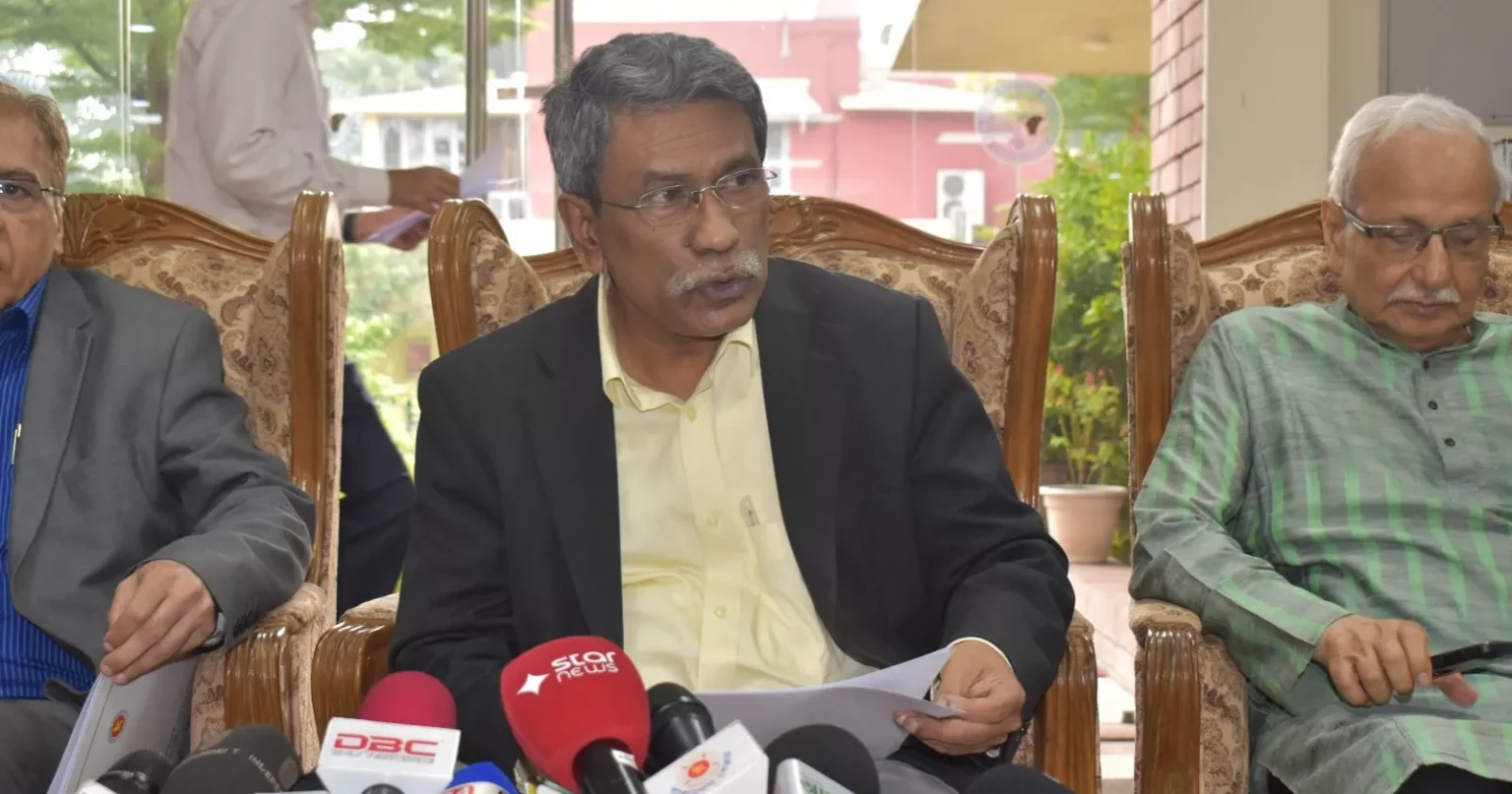A significant reform in the appointment process of election commissioners was unveiled during the National Consensus Commission’s 18th discussion session held at the Foreign Service Academy on Wednesday, with Vice-Chair Professor Ali Riaz disclosing that a five-member selection committee will now oversee the appointments of both the chief election commissioner and other election commissioners.
The proposed committee will be chaired by the speaker of Parliament, with other members comprising the deputy speaker from the opposition bench, the prime minister, the leader of the opposition, and a judge from the Appellate Division representing the chief justice.
This structural change comes as part of a constitutional amendment to Article 118(1), following consensus among political parties regarding the need for a more transparent appointment mechanism.
Under the new system, the selection committee will initiate proceedings 90 days prior to the expiration of the incumbent commission’s term. The process will involve open invitations for applications coupled with independent searches for qualified candidates.
After rigorous scrutiny of credentials through a transparent evaluation process, the committee will forward its unanimous recommendations to the president for formal appointment to five-year terms. The Parliament Secretariat will provide necessary administrative support under the speaker’s supervision.
Alongside these procedural changes, the Commission has proposed new legislation and codes of conduct to strengthen the Election Commission’s accountability to Parliament. Notably, these reforms will maintain existing constitutional provisions under Sub-Articles 2 through 6 unchanged.
The discussion saw participation from representatives of 30 political organisations, including the Bangladesh Nationalist Party (BNP), Jamaat-e-Islami, National Citizen Party (NCP), and various left-leaning and civil society groups.
Key Commission members present included Justice Md Emdadul Haque, several prominent academics, and Special Assistant to the Chief Adviser Monir Haider.
This comprehensive restructuring aims to institutionalise a more credible and inclusive process for appointing election commissioners, addressing long-standing concerns about the neutrality and effectiveness of Bangladesh’s electoral management body.
The reforms particularly emphasise transparency in candidate selection and clearer accountability mechanisms between the Election Commission and legislative authorities.


